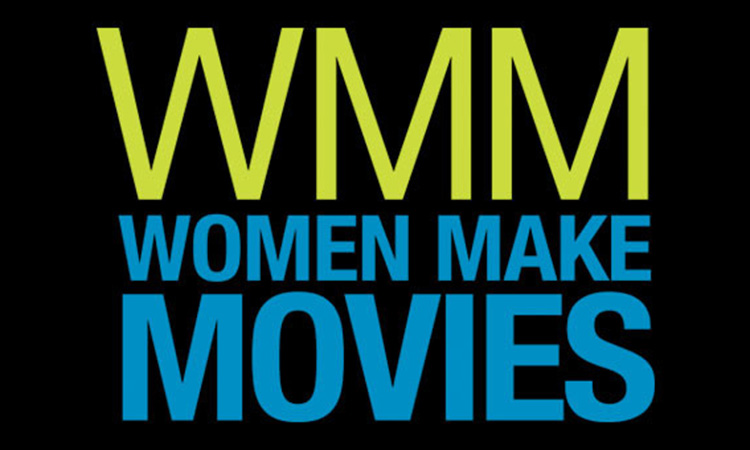MAY 26, 2015 | BY TRACIE HOLDER
Recently, Indiewire released an article, “Sorry, Ladies: Study on Women in Film and Television Confirms The Worst,” in which they reported the following:
- Only 12% of all clearly identifiable protagonists were female in 2014. This represents a decrease of 3% from 2013 which is a decrease of 4% since 2002.
- 74% of all female characters were White, 11% were Black, 4% were Latina, 4% were Asian, 3% were otherworldly, and 4% were other. Moviegoers were almost as likely to see a woman portray an alien as they were to see a Latina or Asian female character.
- In films with at least one woman director and/or writer, females comprised 39% of protagonists.
- In films with exclusively male directors and writers, females accounted for 4% of protagonists.
In response to this continued iniquity, Women Make Movies, a multicultural, multiracial nonprofit media arts service organization, offers workshops and webinars that provide women filmmakers with access to key industry leaders as well as opportunities to master the business side of filmmaking and other skills not often taught in film schools.
For those unfamiliar with Women Make Movies, the organization was established in 1972 to address the underrepresentation and misrepresentation of women in the media industry. WMM serves two primary constituencies—makers and users of feminist media—and is the “go-to” source for films that show the social, political, and aesthetic visions of women rarely seen in mainstream media.
In the next few weeks, WMM will offer programs that focus on fair use and copyright law, hybrid funding for documentaries that mixes traditional sources such as grants with venture capital, and on the programming considerations and film selection process for PBS’s Independent Lens. Our workshops take place at Women Make Movies’ offices at 115 West 29th Street in New York City.
Here are detailed descriptions of our remaining spring and summer events—you can also find this info (except for the last workshop) on our website, which is where participants can register. NAMAC members will receive a $10 discount on any workshop or webinar!
Meet the Broadcaster: Independent Lens; An Evening with Lois Vossen
Monday, June 1st • 6:30 to 8:30pm
 Independent Lens is one of the preeminent showcases of independent documentary film on PBS. In its first twelve seasons, Independent Lens received eleven Emmy Awards, fourteen Peabody Awards, five duPont Awards, and has been nominated for seven Academy Awards. WMM is delighted to welcome Lois Vossen, Independent Lens’ Deputy Executive Producer and Curator, for a candid and wide-ranging conversation about the series, what they are looking for and how best to get on their radar screen. Come and hear first-hand how Independent Lens goes about choosing their slate of films and bring your questions.
Independent Lens is one of the preeminent showcases of independent documentary film on PBS. In its first twelve seasons, Independent Lens received eleven Emmy Awards, fourteen Peabody Awards, five duPont Awards, and has been nominated for seven Academy Awards. WMM is delighted to welcome Lois Vossen, Independent Lens’ Deputy Executive Producer and Curator, for a candid and wide-ranging conversation about the series, what they are looking for and how best to get on their radar screen. Come and hear first-hand how Independent Lens goes about choosing their slate of films and bring your questions.
 Everything You Wanted to Know About Fair Use But Were Afraid to Ask, with Nicole Page
Everything You Wanted to Know About Fair Use But Were Afraid to Ask, with Nicole Page
Thursday, June 11th • 1 to 2:30pm
Filmmaking is hard enough without having to figure out when you can and cannot use other people’s intellectual property without their permission. That’s why it is crucial to understand fair use and its relationship to copyright law. In this webinar, Nicole Page, Esq., Head of Entertainment and Media Law at Reavis Parent Lehrer LLP, will delve in to the legal nuances of fair use and give real-world examples of when and how filmmakers can rely on fair use and when permission from the copyright owner is required.
Hybrid Funding, Lessons Learned: Three Case Studies on Mixing Investment with Grants and other Charitable Contributions
Wednesday, June 24th • 6:30 to 8:30pm
 Increasingly, filmmakers are having to think outside the box to get their films funded. At the same time, a growing number of investors/philanthropists are embracing documentary film as worthy of support. This workshop will focus on the experience of two filmmakers who have successfully navigated the tricky waters of “hybrid funding” which combines more traditional funding sources such as grants and donations with private investments and the expectation that funding will be repaid with a profit. Leading our conversation will be entertainment lawyer Innes Smolansky and our filmmakers, Michèle Stephenson, Producer/Director of American Promise, Diana Whitten, Producer/Director of Vessel and Robin Hessman, Director/ Producer/Cinematographer of My Perestroika. Join us for this illuminating discussion that will explore the benefits and possible pitfalls of this new funding model and include time to answer your questions.
Increasingly, filmmakers are having to think outside the box to get their films funded. At the same time, a growing number of investors/philanthropists are embracing documentary film as worthy of support. This workshop will focus on the experience of two filmmakers who have successfully navigated the tricky waters of “hybrid funding” which combines more traditional funding sources such as grants and donations with private investments and the expectation that funding will be repaid with a profit. Leading our conversation will be entertainment lawyer Innes Smolansky and our filmmakers, Michèle Stephenson, Producer/Director of American Promise, Diana Whitten, Producer/Director of Vessel and Robin Hessman, Director/ Producer/Cinematographer of My Perestroika. Join us for this illuminating discussion that will explore the benefits and possible pitfalls of this new funding model and include time to answer your questions.



Leave a Reply